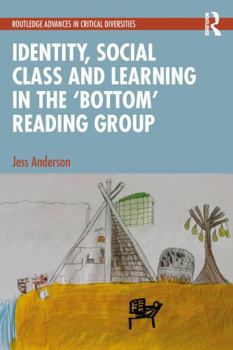Identity, Social Class and Learning in the 'Bottom' Reading Group
The common practice of ability-grouped reading in UK schools, often termed guided reading, influences children's sense of identity, feelings and progress as readers. Drawing on a rich ethnographic study of three primary classrooms, this book reopens a critical inquiry into ability-grouped reading that has been quiet since the 1990s, when guided reading in literacy education became established practice in the UK and the US.
Through the lens of children's agency in accommodating, resisting and at times transforming such reading pedagogy, the book shows how readers are shaped by ability-grouped reading and by the more egalitarian reading pedagogies introduced in the study. Children's individual and collective experiences are brought to life through extended narratives that attend as closely to gesture, posture, visage, silences and prosody of speech as to spoken words.
The book ends with a provocation: how literacy pedagogy might change if reflexive noticing and dismantling of hierarchies becomes the compass of pedagogical change. This demands attention to structural inequalities around race, gender and class and a turn towards deep listening to children. A valuable read for scholars of the sociology of childhood and education it should appeal to anyone concerned with making education more equitable, including teachers, school leaders, parents, carers and policymakers.





